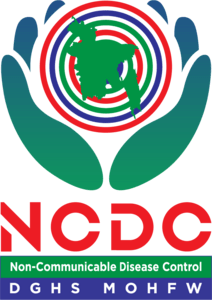SDG & Non-Communicable Diseases
NCDs on the Global Agenda: A
Sustainable Development Priority
The 2030 Agenda for Sustainable
Development, adopted by all United Nations Member States in 2015, marks a
pivotal moment in the global response to noncommunicable diseases (NCDs). For
the first time, these chronic conditions—primarily cardiovascular diseases,
cancers, chronic respiratory diseases, and diabetes—were recognized as a major
obstacle to sustainable development, a significant shift from the preceding
Millennium Development Goals which did not address them.
At the heart of this commitment
is Sustainable Development Goal 3 (SDG 3), which aims to "ensure healthy
lives and promote well-being for all at all ages." The agenda outlines
several key commitments to tackle the NCD epidemic, reflecting a comprehensive
approach that extends from prevention to treatment and access to care.
Reducing Premature Mortality:
A Central Target
A cornerstone of the global
commitment to combat NCDs is SDG target 3.4, which calls for a one-third
reduction in premature mortality from NCDs by 2030 through prevention and
treatment, and the promotion of mental health and well-being. This ambitious
target underscores the urgency of addressing the significant burden of NCDs,
which are responsible for 74% of all deaths globally.
However, progress towards this
target has been slow and uneven. The World Health Organization's (WHO) 2022
Noncommunicable Diseases Progress Monitor revealed that while many countries
are taking action, these efforts are often insufficient to meet the 2030 goal.
The probability of dying from one of the four major NCDs between the ages of 30
and 70 declined from 19.9% in 2010 to 17.8% in 2019, a rate of decline
considered insufficient to meet the SDG target. The COVID-19 pandemic further
exacerbated the situation by disrupting essential health services and
heightening the vulnerability of individuals with NCDs.
Strengthening Responses to
Risk Factors
The 2030 Agenda also emphasizes
the importance of addressing the primary risk factors for NCDs. Specifically,
it calls for strengthening responses to reduce the harmful use of alcohol and
for the robust implementation of the WHO Framework Convention on Tobacco
Control (FCTC).
SDG target 3.5 aims to
"strengthen the prevention and treatment of substance abuse, including
narcotic drug abuse and harmful use of alcohol." This recognizes the
significant contribution of alcohol consumption to the global burden of NCDs,
including various cancers, liver disease, and cardiovascular diseases.
Furthermore, SDG target 3.a is
dedicated to strengthening the implementation of the WHO FCTC in all countries.
Tobacco use is a leading preventable cause of NCDs, and the FCTC provides a
blueprint for evidence-based tobacco control measures. Progress in this area
has been encouraging, with over half of all countries implementing plain
packaging and/or large graphic health warnings on tobacco products.
Universal Health Coverage: The
Foundation for NCD Care
Achieving universal health
coverage (UHC) is a central tenet of the 2030 Agenda and a critical enabler for
effective NCD prevention and control. SDG target 3.8 aims to "achieve
universal health coverage, including financial risk protection, access to
quality essential health-care services and access to safe, effective, quality
and affordable essential medicines and vaccines for all."
For individuals living with or at
risk of NCDs, UHC means access to a continuum of care, from prevention and
early detection to treatment and palliative care, without suffering financial
hardship. High-impact essential NCD interventions can be delivered through a
primary healthcare approach, which is a cost-effective strategy to strengthen
early detection and timely treatment.
Fostering Innovation and
Ensuring Access to Medicines
Recognizing the critical role of
innovation and equitable access, the 2030 Agenda includes a specific commitment
to support the research and development of and ensure access to affordable
essential medicines and vaccines for NCDs, particularly those affecting
developing countries.
SDG target 3.b explicitly
calls for supporting "the research and development of vaccines and
medicines for the communicable and non-communicable diseases that primarily
affect developing countries, provide access to affordable essential medicines
and vaccines...". This commitment acknowledges the market failures that
often leave diseases prevalent in lower-income countries neglected in research
and development pipelines.
Initiatives such as pooled
procurement mechanisms and public-private partnerships are being explored to
improve the affordability and availability of NCD medicines in low- and
middle-income countries. For example, the Novartis Access program focuses on
making a portfolio of medicines for key NCDs available and affordable in
lower-income countries. However, significant gaps in access to essential NCD
medicines persist, with availability often low in the public sector of many of
these nations.
In conclusion, the 2030 Agenda
for Sustainable Development has firmly placed NCDs on the global health and
development agenda. The comprehensive set of commitments within SDG 3 provides
a roadmap for a multi-faceted response. However, achieving these ambitious
goals will require accelerated action, increased investment, and unwavering
political commitment to translate these promises into tangible improvements in
the lives of people affected by NCDs worldwide.


.jpg)













